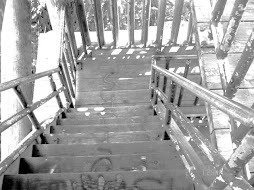It appears to many disgusted Americans that this political year has proven to illustrate just how polarized the nation's two leading political parties have become. The democratic and republican parties have uncompromisingly sought to define their respective camps as essentially being the antonym of the other. Each has made it their highest priority to place as much space as possible between itself and the opposing party for the purpose of providing voters with clearly labeled leadership options. They would probably prefer that those two options be labeled something like good and evil, though each would undoubtedly differ in their opinion of which is which. Somehow in their efforts to delineate their differences, the democratic and republican parties may have created too great of a chasm between themselves—a chasm that more and more American voters seem to be falling into.
Surprisingly, the Wall Street Journal reported this week that the growing new mainstream in American voters is now, by the numbers, the independent voter. According to an column by John P. Avlon titled "What Independent Voters Want," independents make up about 40% of the electorate in the United States and represent a political majority in six states already. These new numbers represent a resoundingly large and influential group of voters that just can't seem to find a home in either end of the American political spectrum. These voters may be able to accept viewpoints on specific issues from each party, but are unable to find enough common ground allowing them to identify with that party. These branded independent voters find themselves stuck in the middle of two American extremes.
I feel that it is this new emerging conglomerate that will become the essential deciding factor in the upcoming November elections. It has already been reported that a decisive number of these independent voters occupy several swing states including Pennsylvania, Florida, and Ohio. I agree strongly with Avlon in his conclusion that "The next president can unite the country even in difficult times if he understands this truth: Americans are not deeply divided—our political parties are—and the independent voter is a direct reaction to this disconnect." Indeed it is the overly polarized parties that are giving a national allusion of disunity and unrest. It is my feeling that the growing independent constituency is largely unimpressed with the edgy and quarrelsome partisan politics that have grown out of the past few presidential election campaigns. Americans are united—under the assertion that political parties need reform.
This weeks article can be found at: http://online.wsj.com/article/SB122445963016248615.html
Monday, October 27, 2008
Subscribe to:
Post Comments (Atom)

No comments:
Post a Comment